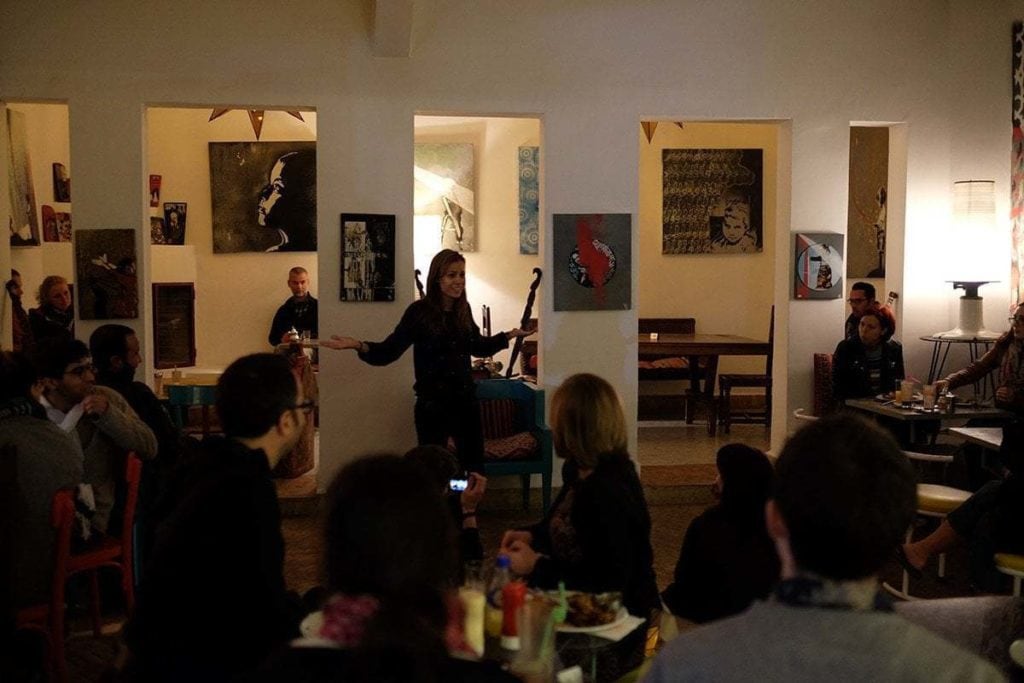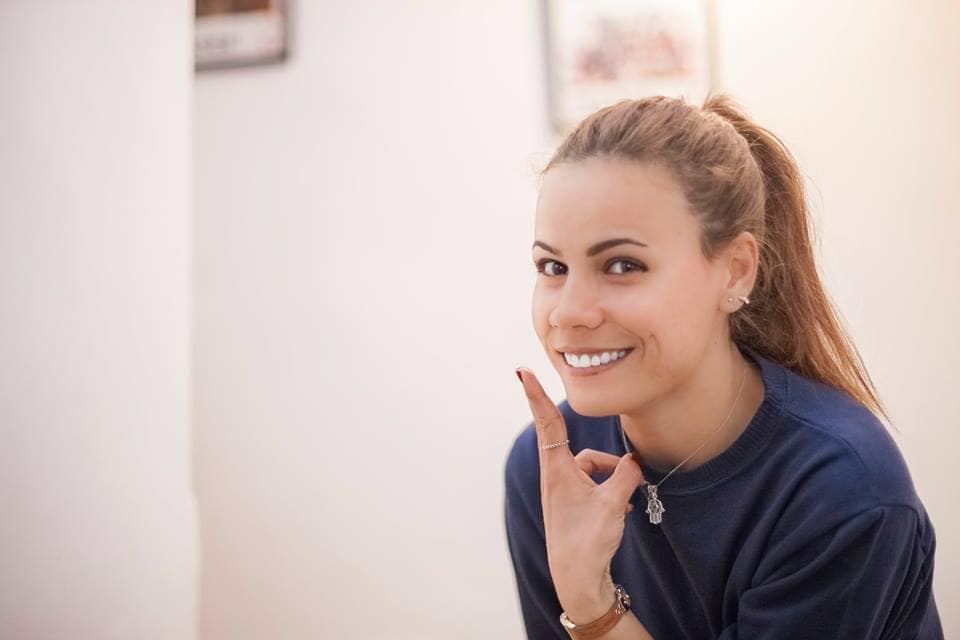“There’s a saying in Morocco that when a storyteller dies, a library burns,” Master Storyteller Hajj Ahmed Ezzarghani told Al Jazeera.
Morocco’s storytelling traditions goes back thousands of years to a time in Morocco’s history of Berber kings, burgeoning spice and gold trade, growing cities, and an expanding empire. Locally called hikayat, storytelling was a way to pass on moral lessons to children, teach cultural beliefs and provided entertainment on the long winter nights. Today, storytelling in Morocco is practiced primarily at Marrakech’s Djemaa el-Fna square; though it is becoming a growing tradition at select cafes throughout the country.
ArchaeoAdventures (AA): You’ve been captivating audiences at Cafe Clock for some time. How did you start working as an apprentice storyteller?
Malika Ben Allal (MBA): I started storytelling a year ago. I heard about it from an American friend, so I met the master storyteller and I decided to translate the stories he tells into English.
AA: You’ve been studying Moroccan stories and the art of storytelling for quite some time. What do you love about Moroccan stories?
MBA: I love that Moroccan stories are full of wisdom and they all have an underlying lesson of morals. Also, I enjoy listening to a story, in sharing stories I am providing this entertainment to others. I think all people love stories.

AA: In Morocco now, young apprentices are learning from Master Storytellers and keeping their stories and tradition of storytelling alive. Master Storytellers spend decades collecting stories, fine-tuning their craft, and performing at squares around Morocco. You’ve studied under the very talented and knowledgeable Master Storyteller Hajj Ahmed Ezzarghani, what was the most important lesson he taught you about telling a good story?
MBA: The most important thing the Master Storyteller taught me about telling a great story is how to make the audience smile at the end of it. Stories are meant to teach and also to be fun. There needs to be entertainment as well as the lesson.
AA: With Marrakech’s legendary Djemaa el-Fna square filling up with vendors, juice stands and traffic, there is less room for the great storytellers to hone their craft. Storytelling was dying out until recently when the young people in Marrakech started bringing back the tradition. Why is it important to keep Morocco’s storytelling tradition alive?
MBA: It’s really important to keep this wonderful tradition alive because it helps people understand Moroccan culture. Storytelling also gets people together. And it keeps Morocco connected to its tradition and heritage.
AA: What are some of the sites and experiences travelers must see when visiting Marrakesh?
MBA: Beside the famous palaces, Berber sites, and the Medina, travelers should visit a storytelling evening, especially those help by young woman doing. They will gain unique insight into Moroccan culture. Cafe Clock offers storytelling by women every Thursday evening.
AA: Do you have any other recommendations for women traveling to Morocco?
MBA: Yes, they should visit the countryside and mountains around Marrakech and see how women live there. Exploring Marrakech and the countryside with a local woman guide gives a unique perspective into Moroccan culture. I think it would be great for them to see that.
Watch Malika and other storytellers at Cafe Clock’s Marrakech storytelling evenings on Thursday night. The evening is free to attend
Visit Morocco: Interested in joining an ArchaeoAdventures Tour to Morocco? Learn more about our Majestic Morocco tour here.



